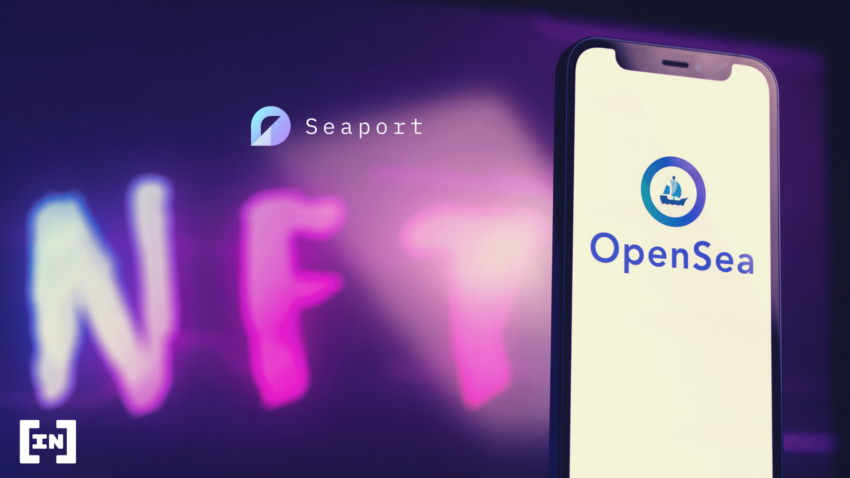OpenSea launched ‘Seaport,’ its newest NFT marketplace on Friday, providing multiple ways for listings to be fulfilled.
The marketplace will offer innovative ways for users to buy and sell NFTs, including the ability for bidders to pay for NFTs using different assets, rather than just crypto.
In its blog post, OpenSea says that every Seaport listing will consist of the same basic structure, including an improved EIP-712 signature payload, which outlines what can be spent and what will be received back.
Traders will also be allowed to specify the criteria they want in any given NFT, or the part of the collection the individual prefers when making offers. Tipping, according to the post, will also be permissible, so long as it doesn’t exceed the original NFT offer.
“As adoption grows and developers create new evolving use-cases, we are all responsible for keeping each other safe,” OpenSea said, clarifying that it would not be the one controlling Seaport, but rather an independent open-source protocol for several developers to build upon.
OpenZeppelin also conducted a security audit of the protocol, in addition to Trail of Bits, which said that there were no major vulnerabilities at the time.
However, OpenSea’s recent announcement has been met with mixed feelings across Crypto Twitter, with some expressing confusion on how the concept will work, while others reference the 0x v4 protocol offers a similar value proposition with its NFT swaps.
OpenSea has been forced to step up its quest for dominance of the NFT space, improving upon its features, while also expanding to other blockchain networks like Solana.
It also recently bought NFT marketplace place aggregator, Gem, to help improve its users’ experience.
Magic Eden daily transactions overpower OpenSea
Magic Eden, the dominant NFT marketplace in the Solana ecosystem, has seen its number of daily transactions top that of OpenSea, according to DappRadar.
While OpenSea’s numbers exceed that of its Solana-based rival, analyzing the percentage growth of both reveal Magic Eden’s dominance.
OpenSea saw its transaction volume declined by over 47% to $245 million, while Magic Eden saw its volume climb by over 10% to $70.9 million.
However, the number of unique smart contracts interacting with smart contracts on both shows that OpenSea has the edge. Indeed, OpenSea recorded a growth of around 9 percent in the last seven days to have over 120,000 new users, while Magic Eden saw its own rise by 6 percent to 129,000 new users.
What do you think about this subject? Write to us and tell us!.
Disclaimer
In adherence to the Trust Project guidelines, BeInCrypto is committed to unbiased, transparent reporting. This news article aims to provide accurate, timely information. However, readers are advised to verify facts independently and consult with a professional before making any decisions based on this content. Please note that our Terms and Conditions, Privacy Policy, and Disclaimers have been updated.


